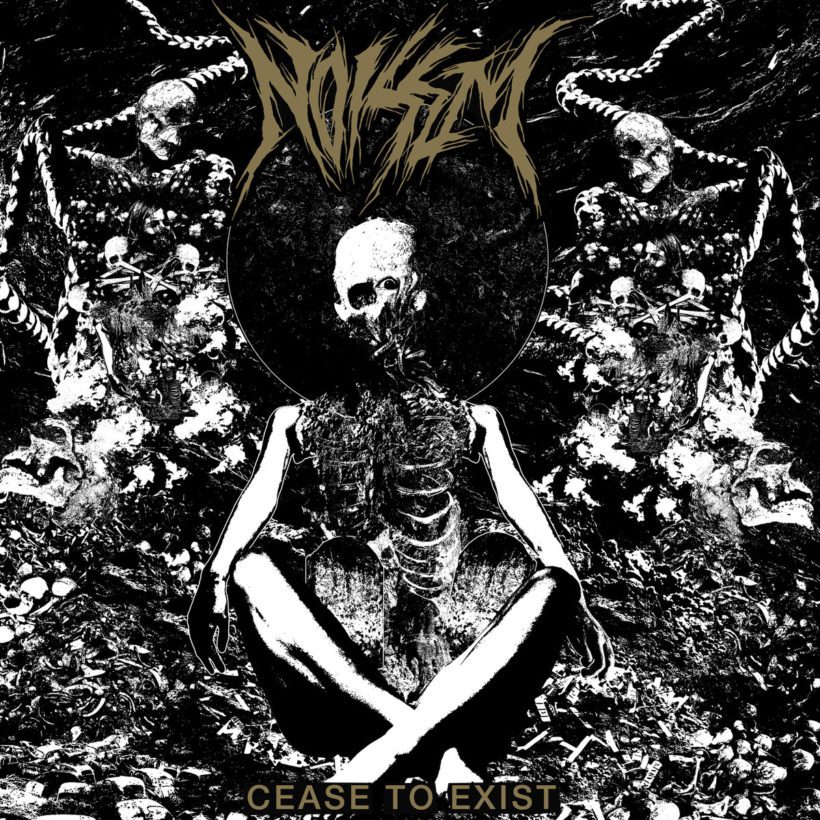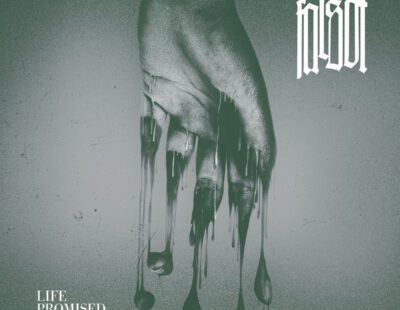
After almost four years in purgatory, a reconfigured and revitalized Noisem drag a bit of hell back to earth
For a hot minute there back in 2015, it really did appear as if Noisem were about to skip the line, transcend Saṃsāra—that’s the seemingly endless cycle of birth and rebirth central to Buddhism and some other eastern religions, you unenlightened fucking heathens—and head straight for death/thrash/grind nirvana. The Baltimore outfit’s stellar scene-jolting sophomore full-length, Blossoming Decay, was an unusually deft and vicious opus that not only electrified fans and landed the band on the cover of this very magazine hovering over the question “Are They Extreme Metal’s Brightest Spark?” but also had Relapse Records racing over, contract in hand.
In retrospect, there were omens that exiting this plane’s suffering would actually not be so smooth. On ultra-sick Blossoming Decay opener “Trail of Perturbation,” for example, the narrator is “wandering along this path” where blooming flowers ultimately “rip from their roots / reincarnate into shards … disabling the will to live”; meanwhile,“Burning” warned that “the heat of the argument does not warm / but only freezes away.” And so, rather than a hype-justifying new record, we got a long period of silence and—eventually, in mid-2017—a Facebook post announcing the departure of bassist Billy Carnes, guitarist Yago Ventura and vocalist Tyler Carnes. Sebastian and Harley Phillips—guitars and drums, respectively—would carry on as a three-piece joined on bass/vocals by Castle Freak’s Ben Anft, a former bandmate from the brothers’ pre-Noisem outfit Necropsy.
That’s some extinction-level tribulation right there, but Noisem 2.0 admirably navigate their way to the other side. In the aftermath of the Blossoming lineup implosion, the Phillips brothers insisted they were the creative core of the band, and the somewhat ironically titled Cease to Exist certainly bears that out. Though the traces of transmigration are audible—particularly in the vocals (less ravage, more pillage) and tighter, streamlined sonic polish—the trademark velocity, lithe riff acrobatics, potent x-factor attack and delicious left field digressions are all here in spades. It’s an interesting mix of frenzy and focus that often feels like Noisem’s Heartwork moment. Then again, there are tracks that you could as easily call the band’s Altars of Madness moment. Or Master of Puppets moment. Or Napalm Death moment. At its best—closer “Ode to Absolution”; mid-album slayer “Penance for the Solipsist”—Cease to Exist nimbly crosses the aforementioned streams.
It’s true that, depending on your personal predilections, you may find yourself—much like your humble correspondent—missing a bit of the teetering, wild Noisem abandon of yore. It is nonetheless difficult to imagine those who live for a sick mélange of extremity greeting the rebirth of Noisem with anything less than overwhelming gratitude.






